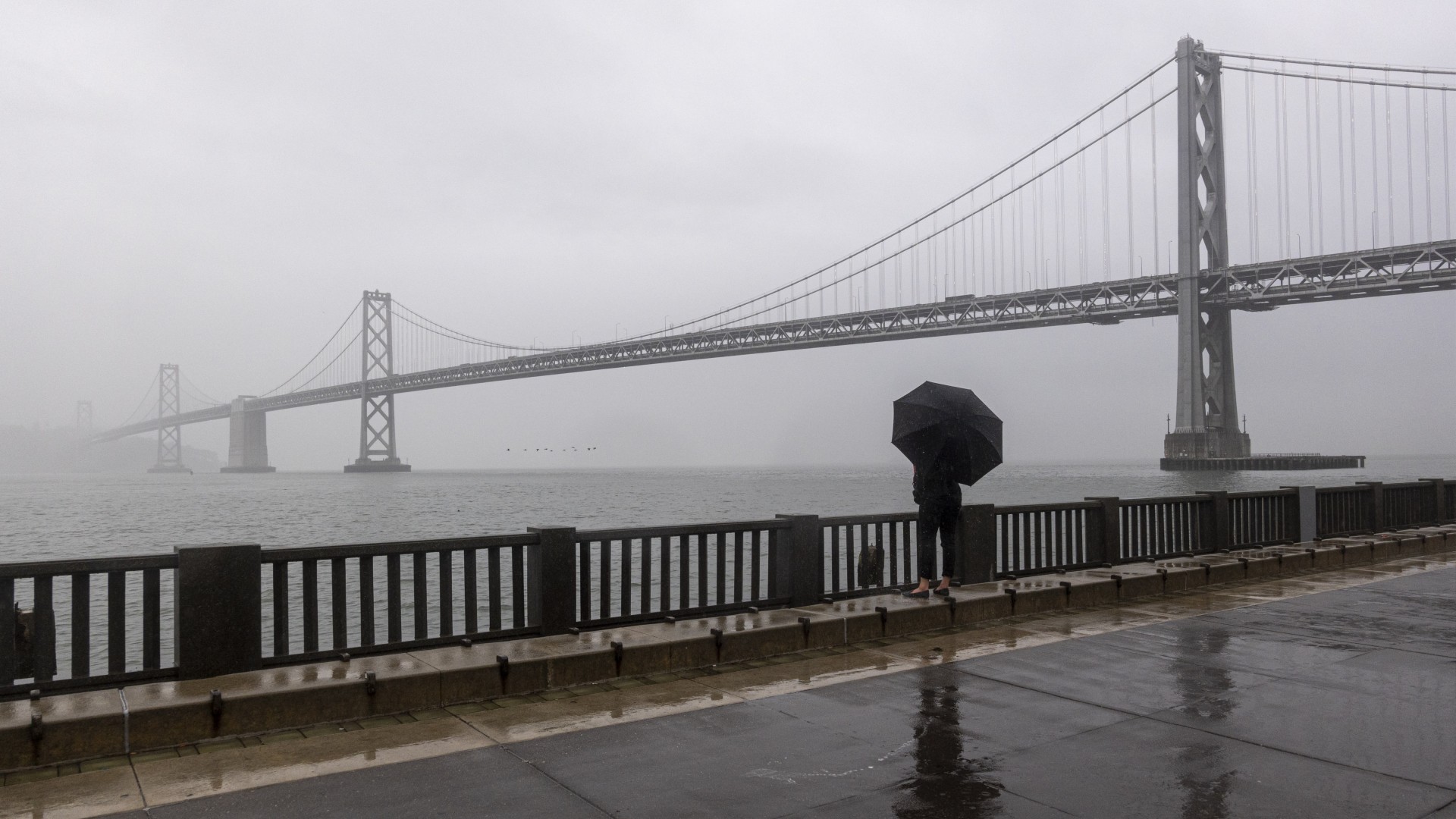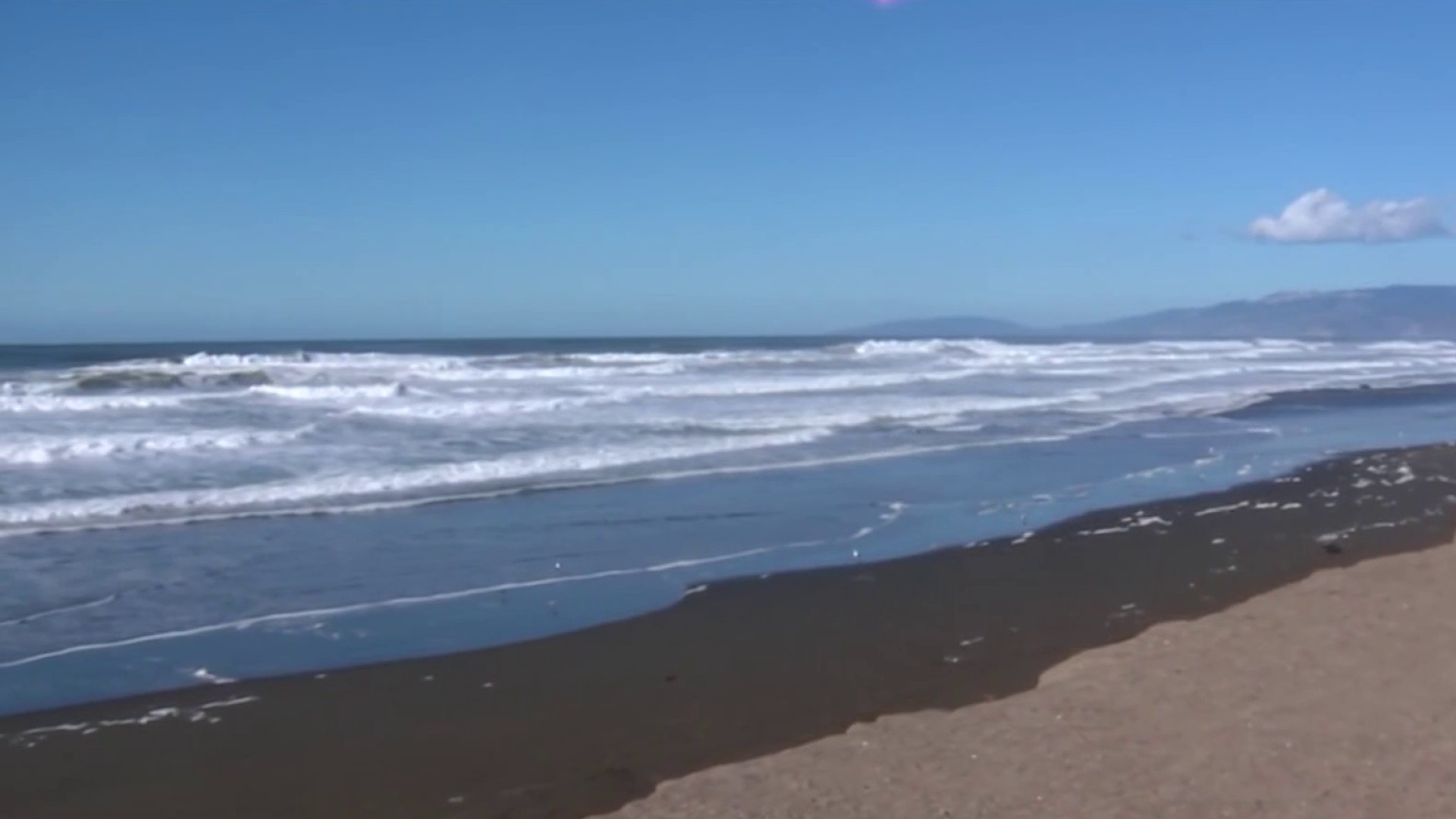California's largest wildfire so far this year has turned deadly as fire crews found two bodies in a burned out car along the path of the McKinney Fire, according to the Siskiyou County Sheriff's Office.
At about 10 a.m. Sunday, the bodies were found inside a vehicle in a residential driveway along Doggett Creek Road, which is off of Highway 96, west of the Klamath River, sheriff's officials said. The victims were not immediately identified.
Crews battling the McKinney Fire braced for thunderstorms and hot, windy conditions that created the potential for additional fire growth Sunday as they sought to protect remote communities.
The blaze was burning out of control in Northern California's Klamath National Forest, with expected thunderstorms a big concern Sunday just south of the Oregon state line, said U.S. Forest Service spokesperson Adrienne Freeman.
"The fuel beds are so dry and they can just erupt from that lightning," Freeman said. "These thunder cells come with gusty erratic winds that can blow fire in every direction."
The blaze exploded in size to about 55,500 acres just two days after erupting in a largely unpopulated area of Siskiyou County, according to a Monday morning Cal Fire report. The cause was under investigation.
The blaze torched trees along California Highway 96, and the scorched remains of a pickup truck sat in a lane of the highway. Thick smoke covered the area and flames burned through hillsides in sight of homes. The fire Sunday cast an eerie, orange-brown hue, in one neighborhood where a brick chimney stood surrounded by rubble and scorched vehicles.
Local
A second, smaller fire just to the west that was sparked by dry lightning Saturday threatened the tiny town of Seiad, Freeman said. About 400 structures were under threat from the two California fires. Authorities have not confirmed the extent of the damage yet, saying assessments would begin when it was safe to reach the area.
A third fire, which was on the southwest end of the McKinney blaze, prompted evacuation orders for around 500 homes Sunday, said Courtney Kreider, a spokesperson with the Siskiyou County Sheriff's Office. The office said crews had been on the scene of the fire since late Saturday but that the fire Sunday morning "became active and escaped its containment line."
Get a weekly recap of the latest San Francisco Bay Area housing news. >Sign up for NBC Bay Area’s Housing Deconstructed newsletter.
Several people in the sheriff's office have been affected by evacuation orders due to the fires "and they're still showing up to work so, (a) very dedicated crew," she said. A deputy lost his childhood home to fire on Friday, she said.
The McKinney Fire "remains 0% contained," the Siskiyou County Sheriff's Office said in a Facebook post late Sunday night.
As the McKinney fire threatened, some residents chose to stay behind while others heeded orders to leave.
Larry Castle and his wife, Nancy, were among about 2,000 residents of the Yreka area under evacuation orders. They left Saturday with some of their prized possessions, including Larry's motorcycle, and took their dogs to stay with their daughter near Mount Shasta.
Larry Castle said he wasn't taking any chances after seeing the explosive growth of major fires in recent years.
"You look back at the Paradise fire and the Santa Rosa fire and you realize this stuff is very, very serious," he told the Sacramento Bee.
Gov. Gavin Newsom declared a state of emergency Saturday as the McKinney Fire intensified. The proclamation allows Newsom more flexibility to make emergency response and recovery effort decisions and access federal aid.
California law enforcement knocked on doors in the towns of Yreka and Fort Jones to urge residents to get out and safely evacuate their livestock onto trailers. Automated calls were being sent to land phone lines as well because there were areas without cell phone service.
Scientists say climate change has made the West warmer and drier in the past 30 years and will continue to make weather more extreme and wildfires more frequent and destructive.
The Pacific Coast Trail Association urged hikers to get to the nearest town while the U.S. Forest Service closed a 110-mile (177-km) section of the trail from the Etna Summit to the Mt. Ashland Campground in southern Oregon.



